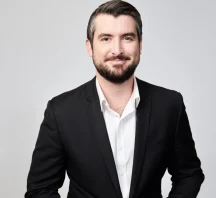‘Glass half full’ RBA keeps ignoring big issues



Former Bank of England governor Lord Mervyn King recently made headlines by stating that central banks in the west all made the same mistake by printing money during the pandemic.
Speaking on BBC One’s Sunday with Laura Kuenssberg programme on 23 October, Lord King explained that during COVID-19 when the economy was actually contracting because of lockdown, central banks decided it was a good time to print a lot of money.
“That was a mistake. That led to inflation. We had too much money chasing too few goods. That was predictable. It was predicted and it happened,” he said.
The former Bank of England governor said it is “time to front up, to have a narrative that explains to people the consequence of allowing inflation to pick up, confronting Russia and supporting Ukraine, which has reduced our national standard of living, and the need to help future generations cope with the increased national debt we are leaving to them.”
These remarks have been well publicised, and would no doubt have been seen by Reserve Bank of Australia (RBA) governor Philip Lowe. But as Lowe admitted in a speech in Hobart on 1 November, he tends to take a more positive view on things:
“A couple of weeks ago, I was in Washington DC with the Australian Treasurer at the G20 and IMF meetings. It was a sobering experience. We heard that: inflation globally is way too high; the rising cost of living is hurting many households; the world is falling behind on the agreed carbon reduction targets; war is once again tragically occurring in Europe; and the global economy is becoming more fragmented.
“As you can imagine, there was not much cheer around, even for somebody like myself who sees the glass as half full.”
The RBA governor went on to remark that as he travels the world listening to fellow central bank leaders, his thoughts “keep returning to the idea of how fortunate we are to live in Australia.”
This is a lovely sentiment, but somehow fails to address the real issues at hand. Unlike Lord King, who can see mistakes were made that led to record levels of inflation, Lowe resorts to a glass half-full approach that doesn’t come close to explaining why Australians are paying over $2 a litre for petrol and have seen their mortgage rates double in six months.
Instead, he stated that “almost all Australians who want a job can find one” and that “our public services are of a generally high quality and our public finances are in better shape than those of many other countries”.
He added that “our natural assets mean that Australia is well positioned for the clean energy transition”, before telling his Hobart audience that “we have a lot to be thankful for.”
Yet the fact remains that the RBA consistently stated throughout the pandemic that rates would remain low for some time. Which clearly wasn’t the case.
As AFR columnist Christopher Joye noted back in July: “In 2020 and 2021, the RBA relentlessly advised families and businesses to borrow as much as possible on the basis of a commitment not to raise rates for years, only to first renege on that promise in 2022 then embark on a crazy-aggressive tightening cycle that is destroying the value of their most valuable asset (and much more)”.
At some point the RBA will have to start telling it how it is. While we all have plenty to be thankful for, we also need clear explanations about the impact of quantitative easing on inflation. And why decisions made at Martin Place have made it even more expensive to live in the lucky country.
Recommended for you
In this episode of Relative Return Insider, host Keith Ford and AMP chief economist Shane Oliver unpack the RBA’s decision to keep the cash rate on hold in the face of rising inflation and whether the governor’s hawkish tone is a sign of things to come.
In this episode of Relative Return Insider, host Keith Ford and AMP chief economist Shane Oliver discuss the September quarter GDP figures, which show Australia’s economy regaining momentum.
In this new episode of The Manager Mix, host Laura Dew speaks to Haley Devine, head of wealth management at MaxCap Group, to delve into private credit and commercial real estate.
In this new episode of The Manager Mix, host Laura Dew speaks to Benjamin Leung, head of systematic investments at Macquarie Asset Management, to understand the use of systematic investments.









It is refreshing to see that finally some very brave, well credentialed person came out and stated the obvious - grave mistakes committed during Covid pandemic by Central Bankers in collusion with the Government that cost us and our children economic stability (not even saying prosperity anymore). Massive transfer of wealth under the guise of pandemic from the poor and middle class to a handful of individuals on the very top! This is a stark contrast to our own RBA Governor, who continues to feed us useless, motivational quotes instead of explaining his mistakes and considering his resignation to give way to someone smarter to fix up the mess. I am also pleasantly surprised that Lord Mervyn Kind's comments were allowed to have been published.
Where's the accountability?!!!...if financial advisers provided this advice, we'd end up in an AFCA deliberation and/or the courts...the Feds need to stop sub-contracting the economic management of this country to an elitist unaccountable statutory authority.